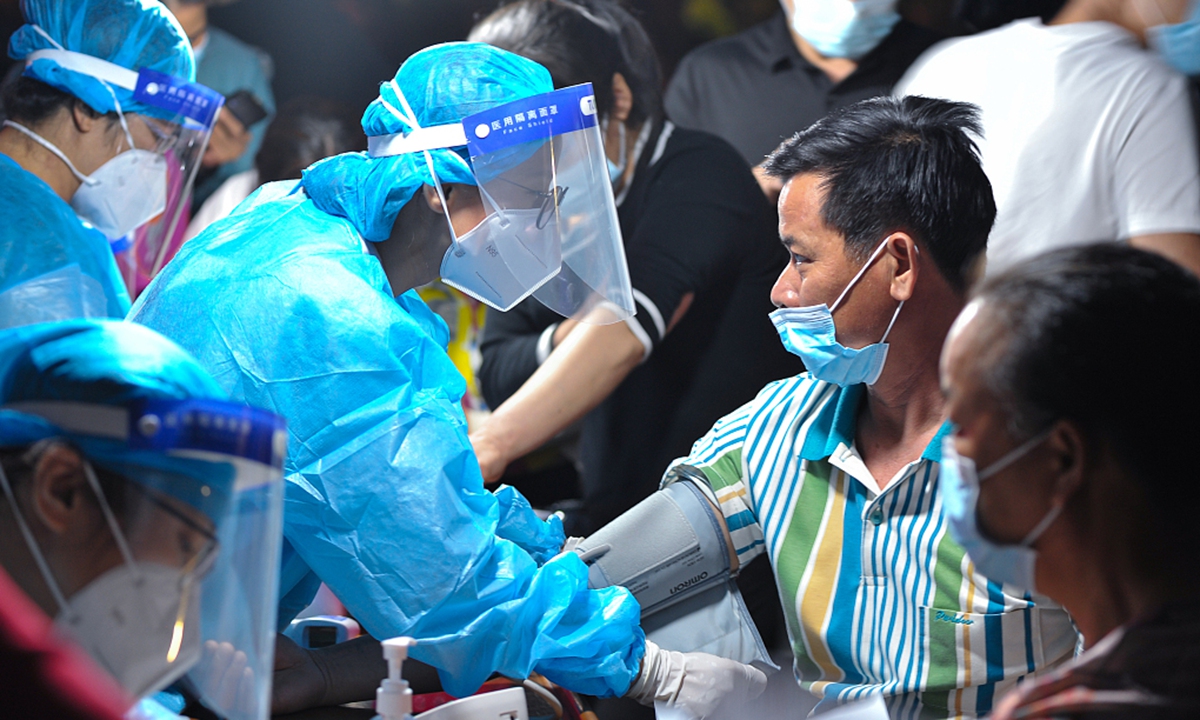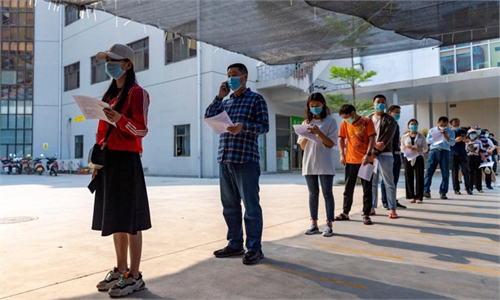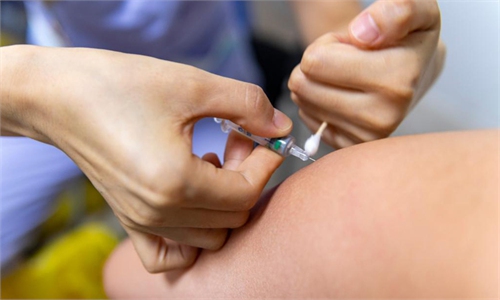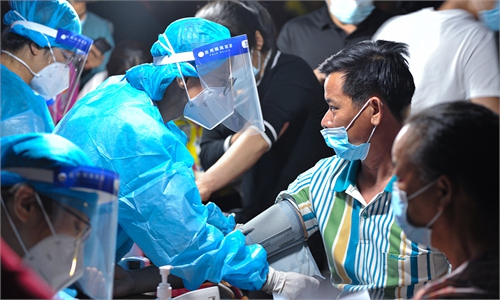Border city Ruili breaks national record of 42 days without high and medium risk areas, gears up mass vaccination

Ruili Photo:VCG
As the China-Myanmar border city Ruili in Southwest China's Yunnan Province gears up for a comprehensive COVID-19 vaccination drive to curb the latest flare-up, health experts said it can be seen as a "pioneer for a more effective, proactive measure" that will build herd immunity and perhaps ease epidemic prevention and control pressure in border cities.
Ruili on Monday raised the risk levels in three areas to "high risk" and six areas to "medium risk," breaking the 42-day streak after the Chinese mainland cleared all medium- and high-risk areas on February 22.
Yunnan recorded 15 new local COVID-19 cases and five silent carriers on Monday, bringing the total to 48 locally confirmed cases and 37 local asymptomatic cases since the latest flare-ups hit the city on March 30, according to the update from the provincial health commission. All patients have been sent to designated hospitals for quarantine and treatment.
The city has completed the first round of nucleic acid tests. All returned negative results, local authorities announced at a press briefing on Monday. Starting from Tuesday, Ruili will begin another round of citywide COVID-19 screening. Vaccinations may be postponed until after the second round, the city government said.
Also, the city launched a citywide vaccination drive on Friday and vowed to vaccinate all eligible people among its 300,000 residents within five days. A total of 159,000 doses of vaccines were urgently allocated for Ruili, according to media reports.
Another 150,000 doses of COVID-19 vaccines, developed by Tianjin-based biologics company CanSinoBIO, arrived in Kunming, capital of Yunnan the next day, the company said in a statement it sent to the Global Times on Sunday.
The vaccine, jointly developed by CanSinoBIO and a team led by military infectious disease expert Chen Wei from the Institute of Biotechnology under the Academy of Military Medical Sciences, is the only single-dose COVID-19 vaccine that has been approved for the market in China. It showed a 68.83-percent efficacy rate against all COVID-19 symptoms 14 days after vaccination, read the company's statement.
Ruili's vaccination drive is in full swing at 25 sites, where people can sign up using their mobile phones at any time of the day, Wan Yongfang, deputy head of Ruili's center for disease control and prevention, said.
In order to achieve herd immunity, COVID-19 shots will be administered to all people qualified for vaccination aged above 18, including Myanmar nationals living in Ruili, said Wan, CCTV News reported on Monday.
To help Myanmar nationals better understand the epidemic prevention rules, nucleic acid testing requirements, and vaccination registration processes, more than 1,540 volunteers have arrived in the city to assist with translation work, according to the People's Daily. They will also play an important role in communicating the needs of foreign residents and offering psychological counseling.
The latest outbreak in Ruili was likely imported from neighboring Myanmar via people or goods, said local health authorities on Saturday, after analyzing the gene sequencing of the virus, which shared a high similarity to the virus sequence previously reported in Myanmar.
Chinese health experts said that the citywide emergency inoculation drive could be regarded as a new approach to curb flare-ups of the disease, which could be utilized in other regions of the country soon, especially along borders where the risk of imported infections is high.
"Compared with previous measures, the new approach has taken the initiative to build an immunity barrier that blocks people from getting the virus. Coupled with the relatively mature epidemic response systems we currently have, it has provided double insurance to stop the virus' transmission," Tao Lina, a Shanghai-based medical expert on vaccines, told the Global Times on Monday.
Once herd immunity is achieved after citywide inoculation, anti-epidemic measures, such as large-scale quarantines and COVID-19 tests, may be eased, noted Tao, freeing people from various restrictions that have affected normal social life in the post-epidemic era.
Experts suggested that China should achieve at least an 80-percent vaccination rate before herd immunity could be established. Refuting claims that it's not necessary to be vaccinated if people in the surrounding area have already received shots, Yang Zhanqiu, a virologist from Wuhan University, told the Global Times that this would be an "irresponsible" move. These people, if exposed to the coronavirus, could still get infected and further pose threats to others, even those who have already received the shots, as there is no absolute guarantee that the vaccines could fend off the virus.
Ruili ordered all residents to carry out home quarantine after the latest outbreak was reported, while the local government spared no effort to ensure the supplies of food and other daily necessities to every household. According to China National Radio on Saturday, supplies in all seven large supermarkets can meet citywide demand in the next two weeks.
The local Red Cross Society released a statement on Monday, calling on social donations to be made in support of the anti-epidemic measures along the southwestern border.
The Red Cross Society will mainly accept medical supplies such as face masks, gloves and goggles, as well as border-patrol supplies including raincoats and boots, read the statement on its official WeChat account.



